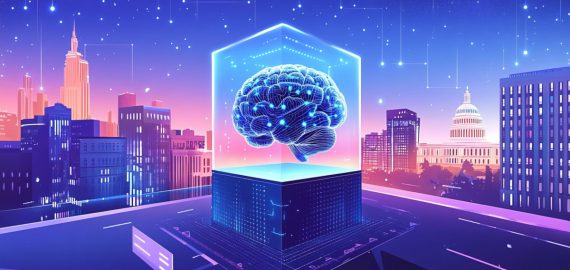GPT-Powered Chatbots and AI Assistants for Doctors Are Transforming Healthcare


In Brief
GPT is revolutionizing medicine, from chatbot physicians to AI assistants for doctors.
GPT-powered chatbots provide medical advice and read medical records, while GPT-4 technology is being used to read medical records and accurately make diagnoses.
AI assistants for doctors are also becoming more mainstream, with projects such as Nabla, Regard and Infermedica receiving interest from investors.
Something big is brewing at the intersection of AI and medicine as there is continuous reserch into how AI can enhance the medical sector.

A group of doctors has recently released a book that explores how GPT is already transforming medicine. The recent emergence of GPT in the medical domain is set to revolutionize the healthcare industry. From chatbot physicians to AI assistants for doctors, GPT is quickly becoming an essential part of modern healthcare and is anticipated to have far-reaching implications for the industry.
For starters, the use of GPT-powered chatbots to provide medical advice is on the rise. These chatbots can answer questions from patients in a way that is comparable to human doctors while often exhibiting greater levels of empathy. In fact, people tend to rate GPT responses as higher quality than those from actual doctors.
Furthermore, GPT-4 technology is being used to read medical records and accurately make diagnoses. Microsoft recently launched a service for hospitals that leverages this technology. This could prove extremely beneficial in the long run as doctors are able to take the help of GPT for more accurate and efficient diagnoses.
A number of AI assistants for doctors have also been developed and are fast becoming more mainstream. These tools help doctors with numerous tasks – deciphering dialogues, filling out cards, providing diagnoses, etc. Such projects have received a great deal of interest from investors as well. Nabla, Regard and Infermedica are a few examples.
The use of GPT-powered language models (LLMs) that are specialized in specific medical texts has been found to outperform general models. To this end, Google recently rolled out Med-PaLM 2, and there are open-access models like MedAlpaca.
These developments strongly suggest that GPT can play an integral role in improving healthcare. By leveraging AI, the industry as a whole can reap numerous benefits, such as reducing healthcare expenditure, providing efficient medical services to aging populations, and managing the doctor shortage. In the years to come, we can expect to see a great deal of innovation in the medical space powered by GPT.
Read more about AI:
Disclaimer
In line with the Trust Project guidelines, please note that the information provided on this page is not intended to be and should not be interpreted as legal, tax, investment, financial, or any other form of advice. It is important to only invest what you can afford to lose and to seek independent financial advice if you have any doubts. For further information, we suggest referring to the terms and conditions as well as the help and support pages provided by the issuer or advertiser. MetaversePost is committed to accurate, unbiased reporting, but market conditions are subject to change without notice.
About The Author
Damir is the team leader, product manager, and editor at Metaverse Post, covering topics such as AI/ML, AGI, LLMs, Metaverse, and Web3-related fields. His articles attract a massive audience of over a million users every month. He appears to be an expert with 10 years of experience in SEO and digital marketing. Damir has been mentioned in Mashable, Wired, Cointelegraph, The New Yorker, Inside.com, Entrepreneur, BeInCrypto, and other publications. He travels between the UAE, Turkey, Russia, and the CIS as a digital nomad. Damir earned a bachelor's degree in physics, which he believes has given him the critical thinking skills needed to be successful in the ever-changing landscape of the internet.
More articles

Damir is the team leader, product manager, and editor at Metaverse Post, covering topics such as AI/ML, AGI, LLMs, Metaverse, and Web3-related fields. His articles attract a massive audience of over a million users every month. He appears to be an expert with 10 years of experience in SEO and digital marketing. Damir has been mentioned in Mashable, Wired, Cointelegraph, The New Yorker, Inside.com, Entrepreneur, BeInCrypto, and other publications. He travels between the UAE, Turkey, Russia, and the CIS as a digital nomad. Damir earned a bachelor's degree in physics, which he believes has given him the critical thinking skills needed to be successful in the ever-changing landscape of the internet.



















































